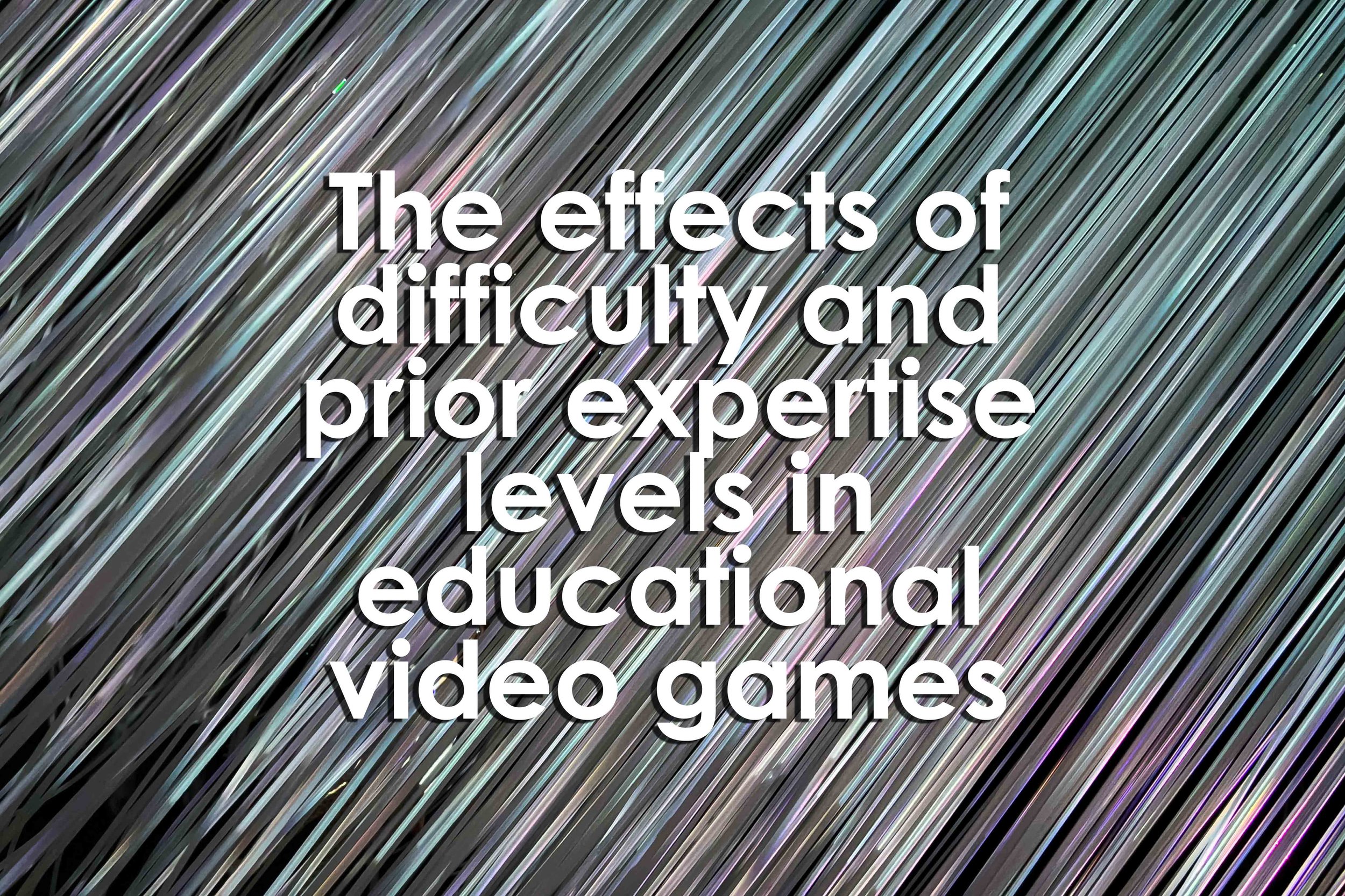The effects of difficulty and prior expertise levels in educational video games
The effects of difficulty and prior expertise levels in educational video games
The effects of difficulty and prior expertise levels in educational video games
By Shail Patel
Abstract
“Video games offer a method to educate students interactively in online environments.However, the effectiveness of online courses can be affected by a student’spreexistingknowledge of a subject. A course that is more guided and walks a player through everystep may be preferred by inexperienced players but may be considered boring to moreexperienced players. These two knowledge groups are in conflict with one another and acourse designed around one group may alienate the other. In order to explore thisdifference in expertise, an educational video game experience has been created that can generate a course style with different levels of difficulty. A course is defined as a series oflevels, where each level is a single problem that must be solved by the player. Playersselfreport their prior expertise on the subject and are assigned a random difficulty level. Theplay-through is then measured as levels are completed. The findings show support for highexpertise players responding more positively to challenging courses while less experiencedplayers avoid levels considered too challenging. Less experienced players also have a smaller rate of course completion level which may indicate a higher level of internal motivationwith additional experience.”
Reference
Patel, S. (2022). The effects of difficulty and prior expertise levels in educational video games. Retrieved May 26, 2022, from https://shailpatels.me/documents/uthesis.pdf
Keyword
Education, gamification, computer science, learning, research

